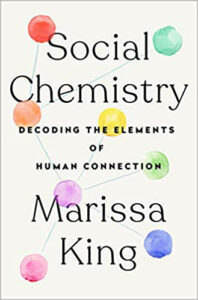Social Chemistry
 Siloes are prevalent in higher education; however, networks can play a large role in the success of faculty, staff, and students. Marissa King’s book, Social Chemistry: Decoding the Patterns of Human Connection, synthesizes years of research on networks into a helpful framework. She describes three major network types: expansionist, convening, and brokering. No one type is better than another, each can serve specific purposes, and people may gravitate towards one network type or another, particularly during different life seasons. Mixtures of network types are also possible.
Siloes are prevalent in higher education; however, networks can play a large role in the success of faculty, staff, and students. Marissa King’s book, Social Chemistry: Decoding the Patterns of Human Connection, synthesizes years of research on networks into a helpful framework. She describes three major network types: expansionist, convening, and brokering. No one type is better than another, each can serve specific purposes, and people may gravitate towards one network type or another, particularly during different life seasons. Mixtures of network types are also possible.
Seeing the applicability of this framework across many dimensions of work and life was enlightening. I also appreciated being able to take the online tool to identify my own primary network type and grapple with its advantages and caution areas (evident for all network types).
I also recently had the wonderful opportunity to speak with King about her book. That conversation confirmed how important it is for colleges and universities to discuss social chemistry, and specifically the ways in which networks can positively impact the work and learning occurring on our campuses.—Tracie Addy, director of the Center for the Integration of Teaching, Learning, and Scholarship